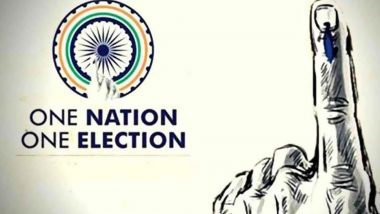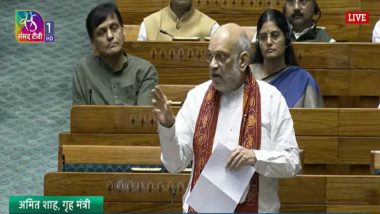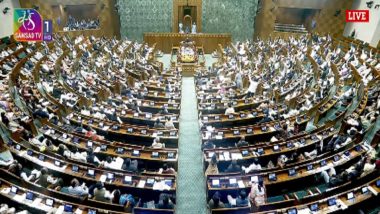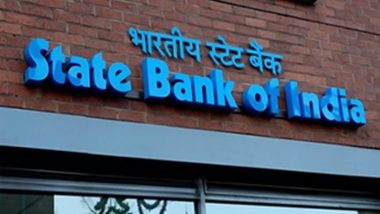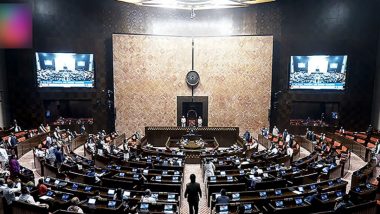New Delhi, February 3: Expressing its support to simultaneous elections that would synchronize the electoral cycles at the central and state levels, industry body CII said 'One Nation One Election' would enhance governance efficiency, and foster economic development. The Confederation of Indian Industry (CII) presented its views to the High-Level Committee on One Nation One Election (ONOE) on Friday. The High Level Committee on One Nation One Election, chaired by former President Ram Nath Kovind held its fifth meeting.
"CII's view was based on the economic benefits of streamlining the electoral process, that would enhance governance efficiency, and foster economic development," the industry body stated. It argued that asynchronous multiple elections lead to frequent disruption in policy making and administration, leading to uncertainty about the government's policies. One Nation, One Election: Former President Ram Nath Kovind-Led Committee Invites Public Suggestions, Check Deadline and Other Details Here.
"It also affects the working of the Government due to its officials being roped in for election duties. Investment decisions by the private sector tend to slow down prior to the elections," said CII. "Further, it leads to delays in project implementation, as the Model Code of Conduct gets imposed," it added.
The industry body emphasised that simultaneous elections, thus, offer a propitious solution by effectively reducing the project implementation delays and a likely cost savings of approximately half the total expenses incurred by the Central and State governments in administering elections. One Nation One Election Will Damage Idea of Parliamentary Democracy, Basic Structure of Constitution, Says AAP.
Chandrajit Banerjee, Director General, CII, said, "In view of both the economic losses and the slowdown in policy-making CII suggests that India should revert to cycle of simultaneous elections.
"CII believes there are two options of doing this 'one is a single five-year cycle and the other is a two-stage simultaneous election with a gap of at least 2.5 years between the Lok Sabha elections and the state elections in the interim period".
(This is an unedited and auto-generated story from Syndicated News feed, LatestLY Staff may not have modified or edited the content body)













 Quickly
Quickly









